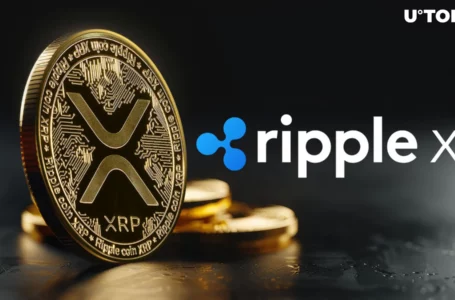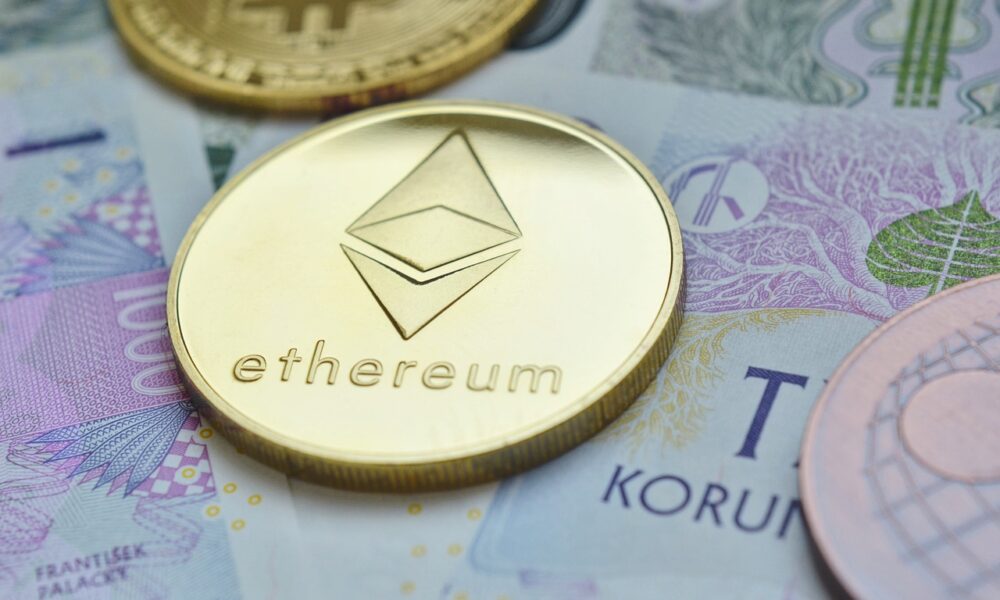
Throughout the previous year, Ethereum‘s rising gas fee was among the biggest concerns of the cryptocurrency industry. Well, especially due to Ethereum’s major role in DeFi and NFTs. The rising gas fees had inadvertently led to more congestion. Hence, higher transaction time and costs. Ethereum’s development team has been breaking necks over fixing these issues. However, the gas fee appears to be regressing of late.

In fact, Ethereum’s average network fees hit their lowest level in six months this week. And, is down nearly 80% from its recent high on Jan. 10. At the time of writing, an average Ethereum transaction cost 0.0046 ETH or $12.14, down from around $52 in early January.
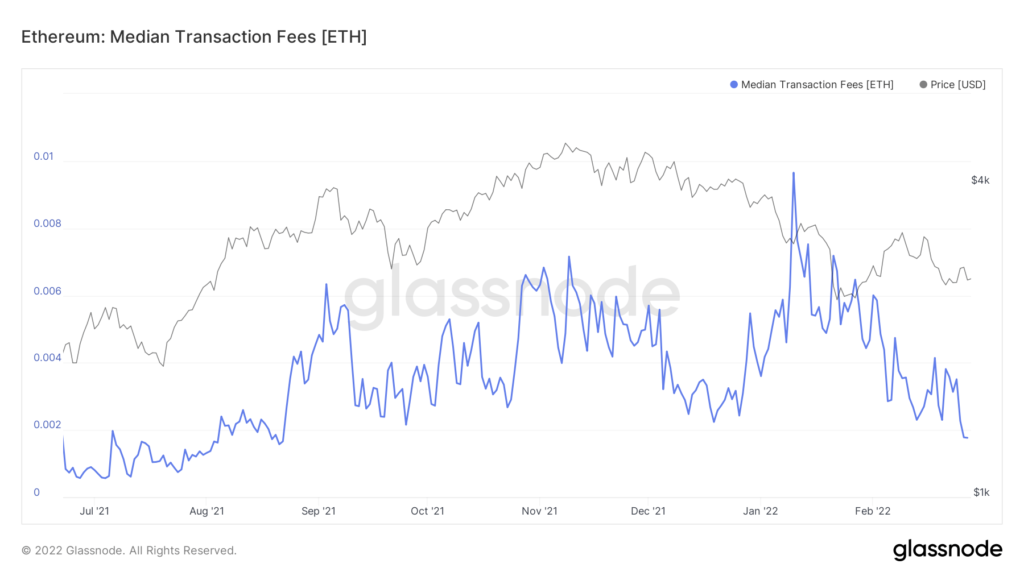
Consecutively, Ethereum’s median gas fee has also slid by over 84% since early January. At the time of writing, it rested at 0.002 ETH or $5.3 per transfer, compared to the $29.92 noted on 10 January. Even though the gas fee was low earlier on 28 February, even so, it should be noted that the levels remain much higher than this time last year.
In addition, a sharp drop in gas consumption was recently noted on February 15, which has since recovered. But this could provide an explanation for the fall in the price of gas, since the two indicators are directly proportional to each other.
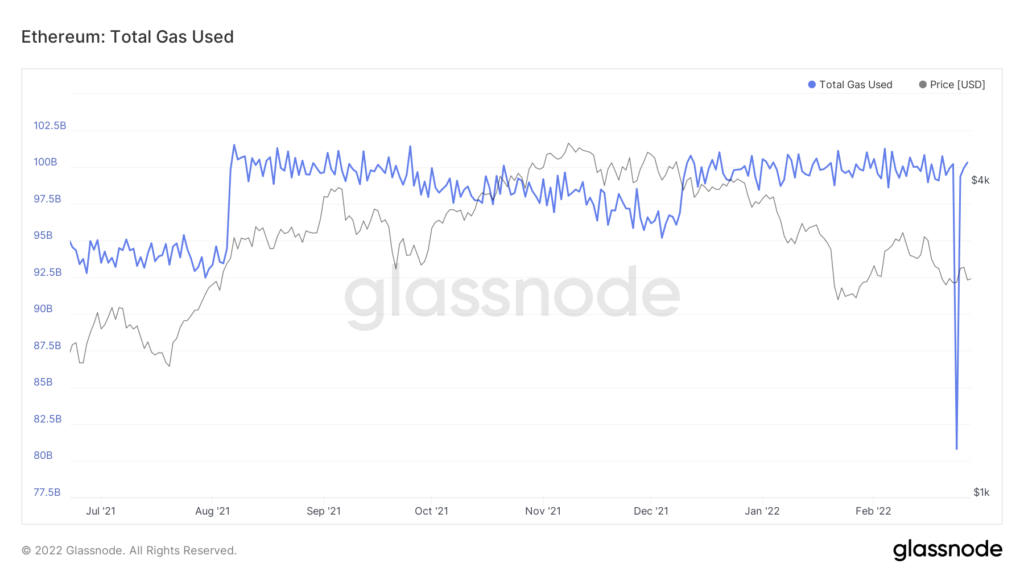
While a decline in gas used could itself be due to lower transaction costs, it could also be due to a fall in transactions themselves. The average transaction count on Ethereum has been on a decline since late November. Well, on 27 February, the Ethereum network undertook 1.12 million transactions.
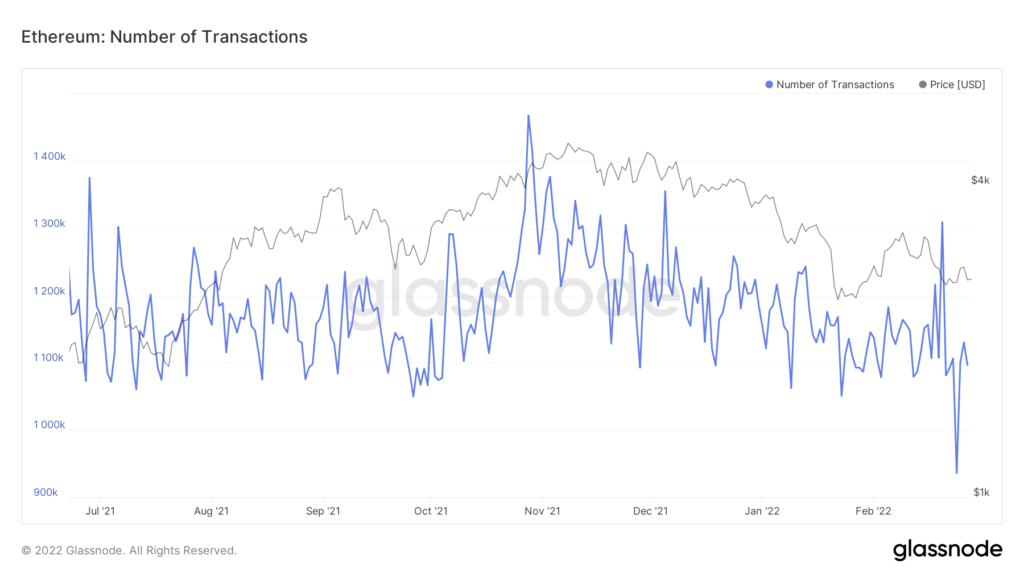
One reason for this could be the continued decline in DeFi usage. The total value locked in DeFi smart contracts fell to $68.9 billion from $98.4 billion three months ago. This is largely due to larger macro factors and the price decline that most cryptocurrencies have experienced recently.
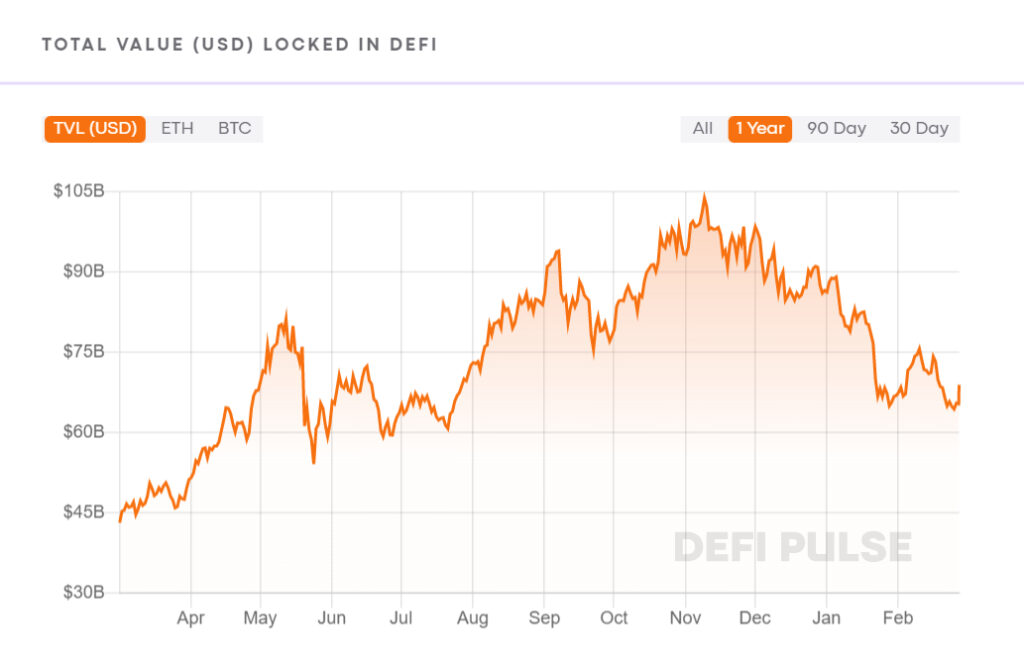
However, another factor that could be pushing down Ethereum’s gas usage and the fee is the rise of alternate blockchains. While a token swap on Ethereum cost $8.75 at the time of writing, the L2 Zero-Knowledge (zk) Rollup zkSync charged $0.22 for the same services.
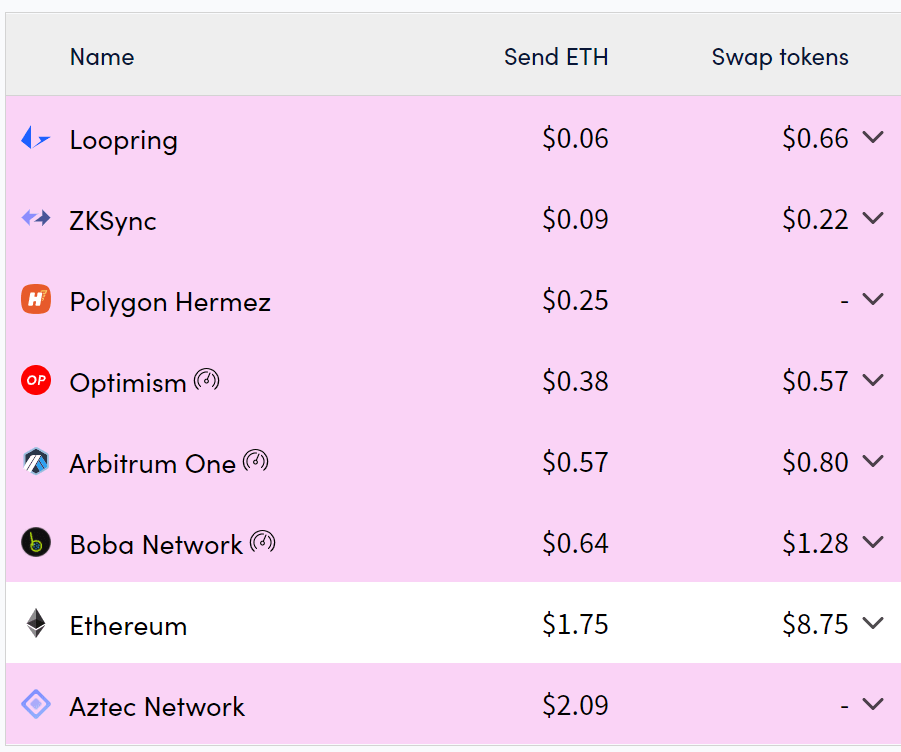
In fact, zkSync 2.0 was recently launched on the Ethereum public testnet, which was touted as the first EVM-enabled zk rollup. It can also interact with smart contracts.

